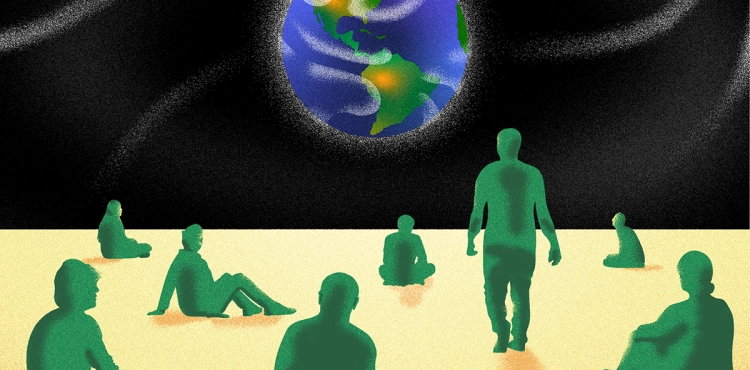Geneva - (AFP) - Heads of state and government and the United Nations presented, on Monday, during a meeting of the World Health Organization their ideas to stop the spread of Covid-19 and prepare to face other epidemics in the future and share vaccines, in order to reach the treaty on epidemics.
This seventy-fourth meeting of the World Health Organization (from May 24 to June 1) is being held virtually to accelerate vaccination operations in very poor countries, in order to stop the epidemic that is still spreading in the world and revive the global economy.
"The world is at war against a virus," the Secretary-General of the United Nations, António Guterres, said at the opening of the discussions. We need the logic and urgency dictated by the war economy to enhance the capabilities of our weapons. ”
The big challenge in this association, which WHO Director Tedros Adhanom Ghebreyesus described as one of the most important associations in the history of the World Health Organization, "is to reform the organization and its ability to coordinate response to global health crises and prevent the spread of epidemics in the future.
Several countries, especially European ones, are calling for a stronger organization capable of carrying out independent investigations and better financing, while only 16% of the budget comes from the countries´ mandatory contributions.
French President Emmanuel Macron declared before the Assembly, "The health organization must be at the heart and direction of our global health."
He said: "This organization must be robust in times of crisis, flexible enough to act in emergency situations, steadfast in the face of disputes, and fully transparent to inspire confidence with clear and transparent governance so that it is not subjected to any diplomatic pressure."
German Chancellor Angela Merkel stressed that "the priority must be to enable the world to respond to epidemic threats as quickly as possible," and she supported the idea of ​​establishing a global council on health threats to improve prevention and response.
Some fear that the meeting will not produce significant results due to differences between countries, especially on the issue of the powers entrusted to the health organization.
Several reports prepared by experts and will be presented during the assembly call for extensive reforms of warning and prevention systems to avoid another health failure, while several countries still lack the necessary public health capacity to protect their populations and alert the international community and the World Health Organization in a timely manner about potential health risks.
These reports also recommend that the Health Organization be able to investigate on the ground in the event of a crisis without waiting for the approval of states, but this proposal may collide with opposition from some countries.
At present, the WHO cannot single-handedly investigate a country. Thus, it took several months of talks with China for a team of independent scientists to visit the place to study the origin of Covid-19, authorized by the WHO.
One of the reports calls for strengthening the authority of the WHO director with one term out of seven years without the possibility of being re-elected (as opposed to a current five-year renewable mandate) in order to be free from political pressures.
And the draft resolution on strengthening the World Health Organization, which is supposed to be approved, calls for the establishment of a working group tasked with studying all the proposals of experts and then issuing recommendations for the next assembly in turn.
The text also invites the WHO director to submit proposals to improve the health alert system, through possible regional mechanisms.
It is also proposed to launch a pilot project for a mechanism to assess the level of preparedness to confront epidemics in each country by its counterparts, as is the case in the United Nations Human Rights Council. Only countries wanting to do so, such as France, will participate in the trial phase.
During the assembly, countries will decide whether to launch negotiations on an international treaty on epidemics aimed at better confronting future crises and avoiding the selfishness that emerged with Covid-19.
Instead of leading to a wave of solidarity, the crisis increased tensions, as it showed the disparity in the vaccination campaigns, which the Director General of the organization described as "flawed", calling for at least 10% of the population of each country to be vaccinated by September and at least 30% before the end of the year.
And Spanish Prime Minister Pedro Sanchez declared, "Thanks to the active support of the World Trade Organization, we must remove all trade obstacles that prevent the production of these vaccines."












